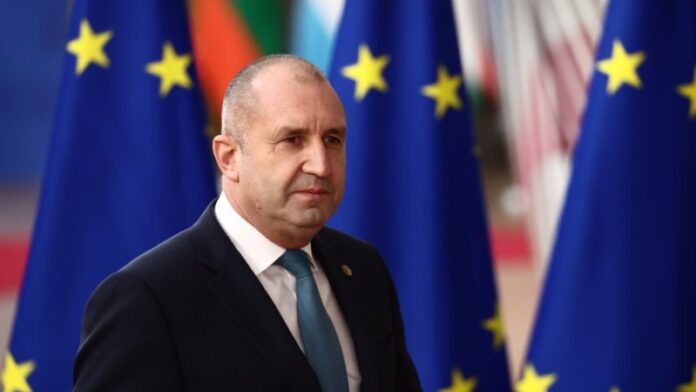Bulgaria’s two largest parties accused President Rumen Radev of being a risk to Bulgaria’s future in the European Union on Saturday, citing his constant political attacks on the government, his influence in society and the pro-Russian line the country has taken during his administration, according to Euractiv.
The We Continue the Change party, which has the most ministers in the coalition government, announced that Radev’s anti-European behaviour in society was a major motive behind their decision to ally with the party of long-serving Prime Minister Boyko Borissov – GERB.
“If there was no risk of (Rumen) Radev taking us away from Europe, we would not have put together a cabinet with GERB”, Lena Borislavova, the leading political strategist of We Continue the Change, commented on Saturday evening.
GERB commented that “democracy cannot be defended with hypocrisy, nor can statehood be preserved with division and with the constantly raised fist” of Radev.
In May, GERB and We Continue the Change formed a coalition government whose declared goals are to bring Bulgaria into the Eurozone, Schengen, support Ukraine, reform the administration, and rid the special services of Russian influence.
Until now, however, the special services have chiefs appointed by Radev during his two-year rule with caretaker governments. During this period, Radev opposed the provision of military aid to Ukraine and has repeatedly suggested that Kyiv is as much to blame for the war as Russia.
The latest scandal between We Continue the Change, GERB and Radev was the proposal to change the Bulgarian national holiday.
The current national holiday, on 3 March, celebrates the signing of the San Stefano Peace Treaty between the Russian and Ottoman Empires after the two-year war for the liberation of Bulgaria from Ottoman rule in 1877-1878. The war was successful for Russia, but the peace treaty never entered into force, and the lands of the Bulgarians were divided into several parts.
As many Bulgarians see this national holiday as a symbol of Russian interests in Bulgaria, the coalition proposes that the Day of Slavic Script (May 24), which celebrates the Slavic alphabet invented 1,200 years ago, be declared a new national day.
On Saturday, Radev defended retaining 3 March as the main national holiday, declaring it “the red line of our patience, which the people’s movement will not allow to be erased.”
“A simple truth stays behind most politicians who pump themselves up with pseudo-patriotism – they want more power, or they don’t want to give up power they already had”, commented We Continue the Change’s co-leader, Kiril Petkov.
On Sunday, Deputy Prime Minister and former European Commissioner Maria Gabriel (GERB, EPP) described the period when caretaker governments led Radev’s administration as one “of timelessness and one-man power”.
“We see that this undermines people’s trust in the institutions. For the sake of citizens’ trust, but also for the sake of international partners and investors, it is important that Bulgaria declares that it is a parliamentary republic and must have a regularly functioning government,” said Gabriel.


